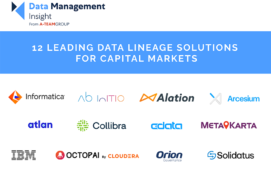Given the regulatory investigations into data rivals Thomson Reuters and Standard & Poor’s owned Cusip Service Bureau, it is no wonder that Bloomberg has felt compelled to offer its proprietary codes to the market for free. The data vendor has indicated that it will be providing its own proprietary financial instrument codes to the market at no charge to users via a new website and under the banner of its new initiative: Bloomberg Open Symbology (BSYM).
The European Commission has been investigating Cusip Service Bureau’s International Securities Identification Numbers (ISINs) for North American securities since January and last month Thomson Reuters’ Reuters Instrument Codes (RICs) were thrust under the regulatory spotlight. It was really only a matter of time before Bloomberg’s instrument codes were due for a regulatory check up.
So, it seems that the data vendor’s symbology initiative is a concerted bid to avoid the same fate as its rivals. On the website, bsym.bloomberg.com, the vendor claims its goal is to provide open identifiers available to everyone in the market and allow for “freedom and flexibility in application development”.
The identifiers concerned are those used in the Bloomberg Professional service and those underlying its suite of enterprise data products. The vendor indicates that its own customer requests have prompted the move; shelling out for proprietary instrument data has long been a bugbear of the financial services market. The move is therefore likely to go down well with the user community given the often high cost involved in purchasing this data and the recessionary pressures being faced by the market.
The vendor seems to be going to great lengths to assure the data community and the regulators that it understands the need for instrument identifiers to be free, while taking a quick swipe at its rivals in the process. Bloomberg states on the new website: “It is common in the industry for organisations that administer symbologies to assert proprietary rights over their identifiers, impose significant limitations on their use and either charge users license fees or include their symbology licenses with the purchase of related products. Bloomberg, however is making their robust BSYM identifiers, (originally developed for the Bloomberg Professional service and Bloomberg’s enterprise data products) available through Bloomberg’s website at no charge to users, with no material impediments on use.”
It contends that users can use the identifiers for a variety of uses including trading, research and mapping and it assures these users that even though they are free, it won’t let standards slide. “Bloomberg will continue to update, build, and administer its identifiers to ensure they continue to serve as effective symbols for the broad uses required in today’s financial markets,” it claims.
With Bloomberg championing the idea of open standards in the data space, it will be interesting to see how its data rivals react. It is also a shame that such a move could only be prompted by regulatory intervention in the markets, rather than listening to customer complaints. No matter how it tries to play the role of the Commission in its decision down, the data vendor must have been feeling the regulatory heat as the next in line for investigation.
It all goes to show, however, that the regulators do have a significant amount of clout over the data community and can prove to be a force for good in the long run.
Subscribe to our newsletter




